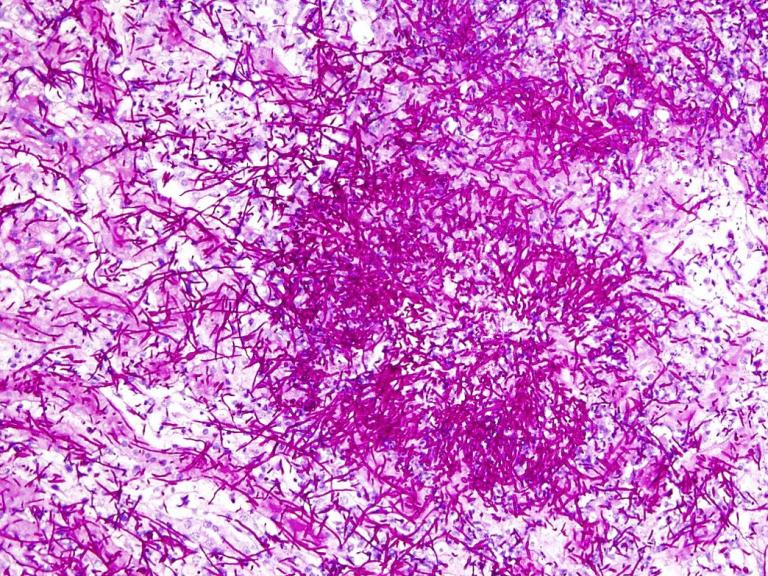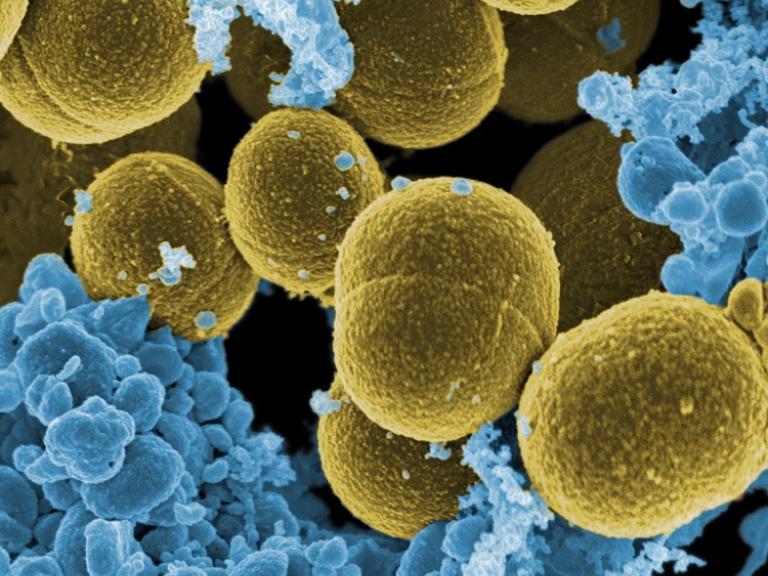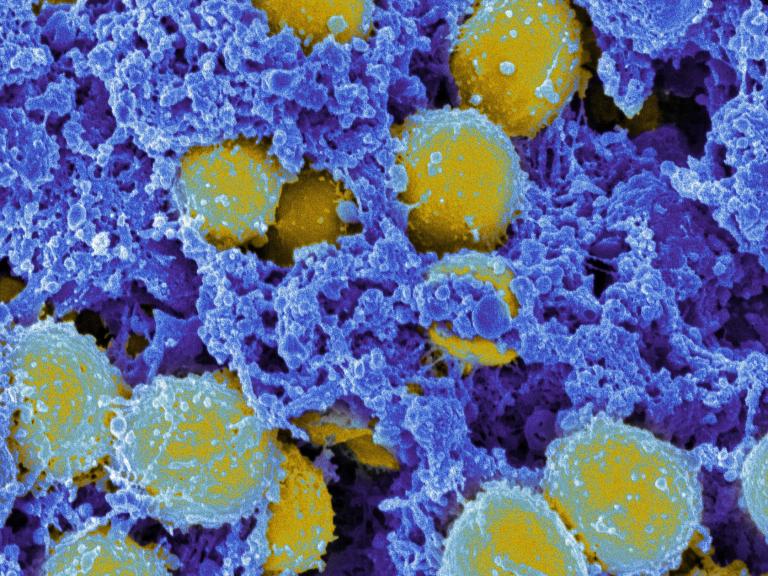The NIAID Primary Immune Deficiency (PID) Clinic is located at the National Institutes of Health (NIH) Clinical Center and is dedicated to research on the more than 200 forms of primary immune deficiency diseases affecting approximately 500,000 people in the United States.
Featured Trials

Unexplained Invasive Fungal Infections Syndrome in Adults and Children
The study is investigating why some people are susceptible to IFIs even without underlying immune deficiency. It will explore genetic and immune system factors that may contribute to the condition.

Chronic Granulomatous Disease Studies
Chronic granulomatous disease (CGD) is a genetic disorder in which white blood cells called phagocytes are unable to kill certain types of bacteria and fungi. NIAID aims to improve diagnosis, explore new treatments and preventions, and facilitate genetic counseling for this primary immune deficiency disease.

STAT3 Dominant-Negative Disease Studies
STAT3 dominant-negative disease — also known as Job’s Syndrome—has widespread deleterious effects on patients’ health. NIAID-supported research seeks to determine the effect of STAT3DN on the immune system, including which immune cells and responses are affected and how these abnormalities translate into patients’ symptoms.
Clinical Trials Sponsored by the Primary Immune Deficiency Clinic
The clinical trials and studies conducted by the Primary Immune Deficiency Clinic change frequently, but you can see a list of all current clinical trials and studies being conducted by the Primary Immune Deficiency Clinic on our Find a Clinical Trial page.
The clinic accepts patients who are at least 2 years old who have a known or suspected primary immune deficiency disease.
Before Your Visit
If you are interested in coming to the PID Clinic, discuss this option with your personal physician or specialist.
You must be referred to the PID Clinic by your doctor. Your doctor will need to send the PID Clinic staff the following information:
- A summary letter describing your condition and current health status
- A list of treatments and medicines you have taken
- Copies of your complete medical records
Send the requested information and records by FedEx to:
National Institutes of Health
10 Center Drive
Building 10, Room 12C-103
Bethesda, MD 20892-1899
Attn: Carla Williams, RN
Phone: 301–496–4000
Our clinicians will notify your doctor and you of their decision by mail in about 6 to 8 weeks. If our clinicians determine that you would benefit from coming to the PID Clinic, you and your family will then be invited. Our clinical staff will send you a copy of the NIH Patient Handbook and a copy of the NIH Screening Consent prior to your visit to NIH.
Expenses
Your visit to the clinic is free, so there is no need to worry if your insurance will cover your visit. However, your initial travel expenses will not be covered.
For those arriving from outside the Washington, DC, metro area, some overnight housing is available on the NIH campus at the Children’s Inn. There are also many hotels and motels convenient to public transportation in the area.
During Your Visit
Plan to stay for at least one full day (approximately eight hours) of testing and evaluation. Some diagnostic tests take two days to complete, so you may need to return to the clinic for a half-day follow-up visit.
During your visit, you can expect the following:
- Initial discussion with an NIAID clinician (Day 1)
- Physical examination (Day 1)
- Diagnostic tests, including blood work, CT scan, or MRI, if needed (Day 1 to 2)
- Wrap-up session to review your test results, treatment recommendations, and diagnosis (Day 1 or 2)
Genome Sequencing
Any patient of the PID clinic is eligible to receive genome sequencing and associated services through the NIAID Centralized Sequencing Program. Patients interested in participating in the sequencing process can visit the NIAID Centralized Sequencing Program page for eligibility criteria and contact information.
Resources
Of Special Interest to Parents (NIH Clinical Center)
For Parents and Children (NIH)
Services Available at NIH
The NIH Clinical Center provides many services to its visitors, including counseling, a business center, and recreation. For details, visit the NIH Clinical Center Patient Services website.
Follow-up Care
Our staff is committed to helping you better manage your disease.
After your exam at the clinic is complete, you may be offered the opportunity to participate in ongoing clinical trials at NIAID. Only our clinicians can determine if you are eligible to participate.
Alternatively, you may be informed of primary immune deficiency diseases studies for which you may be eligible at clinical centers outside of NIAID.
Read More About the Research
Learn more about NIAID's research on primary immune deficiency diseases.
What is it Like to Participate?

The best part of participating in the trial was seeing the staff during each visit: they were so upbeat, kind, and thankful. I felt as though I was part of a team that would change the world—and I know it will.
– Tony Lee
Read more about participating in the Participant's Guide to Clinical Trials
Read some Participant Testimonials to see more about what its like to participate.
You can also watch a series of short informational videos from Health and Human Services about participating in clinical trials.
Contact Information
National Institutes of Health
10 Center Drive
Building 10, Room 12C-103
Bethesda, MD 20892-1899
Attn: Carla Williams, RN
Phone: 301–496–4000

